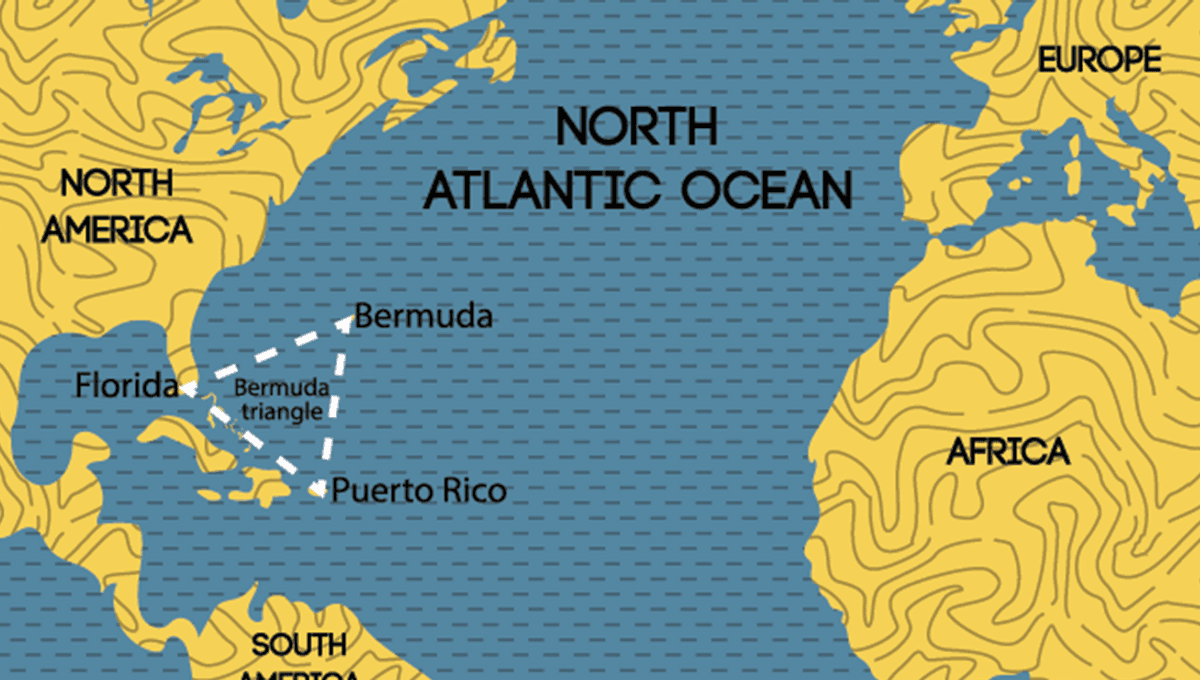
For years, people have claimed that ships and aircraft that pass over the Bermuda Triangle – a loosely defined area between Florida, Bermuda, and Puerto Rico – tend to go missing or get wrecked at a higher rate than elsewhere on the planet.
Pushing through the Bermuda Triangle is the Sargasso Sea, which some claim could partly explain the supposed disappearance of ships in the area. The reason is twofold, and both were encountered by Christopher Columbus and the crew of the Santa Maria.
In 1492, Columbus’s ship became stranded on the Sargasso Sea due to a lack of wind. For three days, while the ship and its sister ships were adrift, they encountered sargassum, a type of thick brown seaweed that floats, sometimes clumping itself into island-like masses in the ocean. The sargassum, which rots to produce an eggy smell, can be hazardous to human health.
“Significant exposures (50-400 ppm) may produce difficulty in breathing, agitation, confusion, nausea and vomiting, elevated blood pressure, and loss of consciousness,” a recent review highlighting the health risks of the seaweed reads. “At higher concentrations, [hydrogen sulfide produced by the rotting seaweed] rapidly causes myocardial infarction, unconsciousness, seizures, acidosis, and death.”
The crew of the Santa Maria, however, saw the seaweed and feared they were about to run aground, or else that they would become tangled up in the sargassum and dragged down underneath the ocean. The sea became legendary among sailors for this reason, plus the eerily calm winds, before being written about by Jules Verne in the novel Twenty Thousand Leagues under the Sea.
“This second arm — it is rather a collar than an arm — surrounds with its circles of warm water that portion of the cold, quiet, immovable ocean called the Sargasso Sea, a perfect lake in the open Atlantic: it takes no less than three years for the great current to pass round it,” the passage reads. “Such was the region the ‘Nautilus’ was now visiting, a perfect meadow, a close carpet of seaweed, fucus, and tropical berries, so thick and so compact that the stem of a vessel could hardly tear its way through it. And Captain Nemo, not wishing to entangle his crew in this herbaceous mass, kept some yards beneath the surface of the waves.”
Part of the explanation of the Bermuda Triangle legend could stem from the fear of these first sailors of the lack of wind and the masses of seaweed. However, though unexpectedly calm seas could account for early ship sinkings, it’s not clear that there’s any great mystery to explain in the first place.
Statistically, there are not more accidents that happen in the Bermuda Triangle compared to other areas of the oceans and seas. In fact, a study looking at the most dangerous waters for shipping by documenting accidents and incidents did not feature the Bermuda Triangle in its top 10. Meanwhile, a UK Channel 4 documentary looking into incidents around the Bermuda Triangle determined that “large numbers of ships had not sunk there”.
The belief that there are more sinkings in the area likely comes from the media (and conspiracy theorists) focusing on any sinkings in the area because of intrigue around the Bermuda Triangle, reinforcing the mystery when really, statistically speaking, accidents are no more likely to occur here than in other areas ships and planes pass over.
Source Link: Could Sargassum Be Behind The Myth Of The Bermuda Triangle?